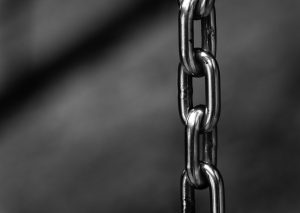With the increasing number of data breaches and cyber attacks, it is becoming increasingly important to secure online accounts and protect sensitive information. Multi-Factor Authentication (MFA) is a highly effective way to do so. In this blog post, we will discuss what MFA is, its benefits, and why it is necessary for individuals and organizations.

What is Multi-Factor Authentication?
Multi-Factor Authentication, also known as two-factor authentication (2FA), is a security process that requires two or more forms of authentication to access an online account. The two factors are typically something the user knows (such as a password) and something the user has (such as a phone or a security key). MFA adds an extra layer of security to the traditional password-only authentication process.
Benefits of Multi-Factor Authentication
- Enhanced Security: MFA provides an additional layer of security, making it harder for hackers to access an individual’s or organization’s sensitive information. The combination of different authentication methods makes it much more difficult for a hacker to penetrate the system.
- Protection against Phishing: MFA can also protect against phishing attacks, where a hacker tries to trick the user into entering their login credentials on a fake website. With MFA in place, the hacker will not be able to access the account even if they have the password.
- Easy Implementation: MFA is easy to implement and can be done through various methods such as mobile apps, security keys, or text messages. Most MFA solutions are user-friendly and require minimal setup.
Why is Multi-Factor Authentication Necessary?
- Protecting Sensitive Information: With the increasing number of data breaches and cyber attacks, it is crucial to protect sensitive information such as financial information, personal details, and intellectual property. MFA provides an extra layer of security to ensure that this information is kept safe.
- Compliance: MFA is also necessary for organizations to comply with various regulations and standards, such as the Payment Card Industry Data Security Standard (PCI DSS) and the Health Insurance Portability and Accountability Act (HIPAA).
- Protecting against Password Reuse: Many individuals use the same password for multiple accounts, which can make it easy for hackers to gain access to multiple accounts if one password is compromised. MFA reduces the risk of password reuse and makes it much harder for a hacker to gain access to sensitive information.
In conclusion, Multi-Factor Authentication is a highly effective way to enhance the security of online accounts and protect sensitive information. With the increasing number of cyber attacks, it has become necessary for individuals and organizations to implement MFA as an additional layer of protection.